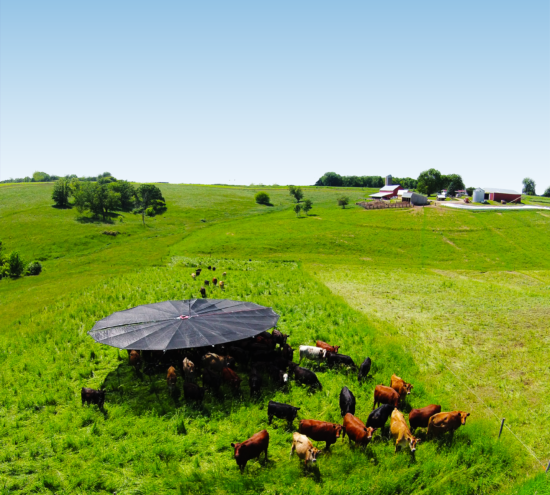By Vince Hundt
Being a seventy-year-old Wisconsin farmer, trending is not a word that I use very often. For most of my life, a “trend” was a noun, generally about hairstyles and the length of skirts, but it has recently become a verb. That’s life: the language changes, people change, the climate changes, agricultural practices change. We wake up one morning and the world is a different place.
Bad trending
When I was born in 1951, there were 168,000 dairy farms in Wisconsin, and they were essentially all “organic” and almost all of them depended on grazing for a good part of their forage. Wisconsin was covered by a lot of small farms with grass and hay and clean water. Today Wisconsin has 6,500 dairy farms, only a few hundred of them are organic and those few are pretty much the only ones that do any grazing at all. Not by coincidence, during that same time period Wisconsin saw its lakes, rivers, and groundwater go from friendly, clean, clear, and drinkable to darkly poisoned with nitrates, phosphorus, and a godawful assortment of herbicides, pesticides, and pharmaceuticals.
Good trending
Regenerative agriculture is about cover crops, rotations, and diversity, but first and foremost it is about bringing back animals, grass, and grazing. The only agricultural practice that solves all the problems of polluted water runoff, groundwater contamination, soil erosion and depletion (while at the same time sequestering new carbon in the soil) is rotational grazing. Rotational grazing, with the simple mantra of move the water, move the fence, move the shade, is regenerating the health of our soils, water, animals, rural communities, and the health of our citizens. A recent Wall Street Journal article (excerpt below) indicates this idea is really sinking in deep. Personally, I am rotationally grazing and trending hopeful on the future.
Wall Street Journal. April 1, 2022
“This is not a boutique trend. In 2019, General Mills announced a commitment to advancing regenerative practices on 1 million acres of farmland by 2030; PepsiCo followed suit in 2021 with a pledge to do the same across its entire 7-million-acre agricultural footprint. Nestle SA said recently that it would invest $1.3 billion over the next five years to help farmers transition to regenerative practices.”
